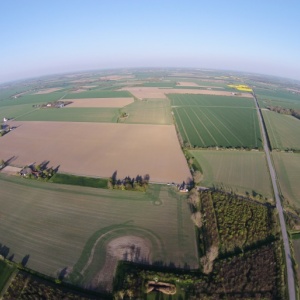
The food and agriculture (F&A) industry must increase production, availability and access to food significantly over the next ten years if it is to meet the demands of a larger, increasingly urban global population according to a new report presented by Rabobank at Expo Milano 2015.
In order to boost production and increase availability seven key steps need to be taken by all in the Food & Agri industry according to Raboank to embrace the opportunity provided by data and technology according to 'Building a Smarter Food System'.
The first four include better use of technology including:
Drones: Increasingly used to monitor and boost livestock and crops, and measure pasture and grass growth. However, these are currently 'work in progress' due challenges such as real-time decision-making and systems reliability.
Big Data: Major retailers are using data to track purchases, and monitor the quality of perishable goods, enabling them to meet consumer demand more effectively. At the same time "Ag Tech" start-ups are developing ways to help farmers increase yields and cut costs, through weather information, analytics, soil monitoring, and more.
Poultry production: Processors can monitor the performance of poultry farmers providing guidance on potential productivity and welfare gains. Growing control over poultry hatching, production and processing can boost productivity and profitability up to 5%.
Smart irrigation: GPS, plant and soil sensors providing real time data to spray systems to optimise the delivery of water and fertilisers.
In addition the report identifies "three keys" that will be essential if global food and agriculture industry is to meet the demands of the next ten years and make use of the potential in new technology:
Strengthen supply chains: A smarter food system will require buyers and suppliers to make new investments and take on new risks in pursuit of new rewards. Success will depend on greater connectivity between buyers and suppliers, sharing data and making joint decisions in real time.
Enable investment: New approaches and technologies entail new risks and opportunities. This will require understanding and support from both investors and regulators, who will need to provide frameworks where technology can be used safely and effectively.
Achieve societal acceptance: consumer concerns include genetic modification and cloning, and data privacy, food waste and nutrition. These concerns should be addressed and taken into account in the change process. Increased levels of engagement and education are required to build a smarter and more sustainable food system backed by public support.
See further coverage of the report here. We recently covered a report on the use of big data to improve agriculture and nutrition, which you can read here. See further coverage of the report here. Rabobank released a similar report last year which you can read about here.
See more on innovation, technology, population, and food security and nutrition.







Post a new comment »